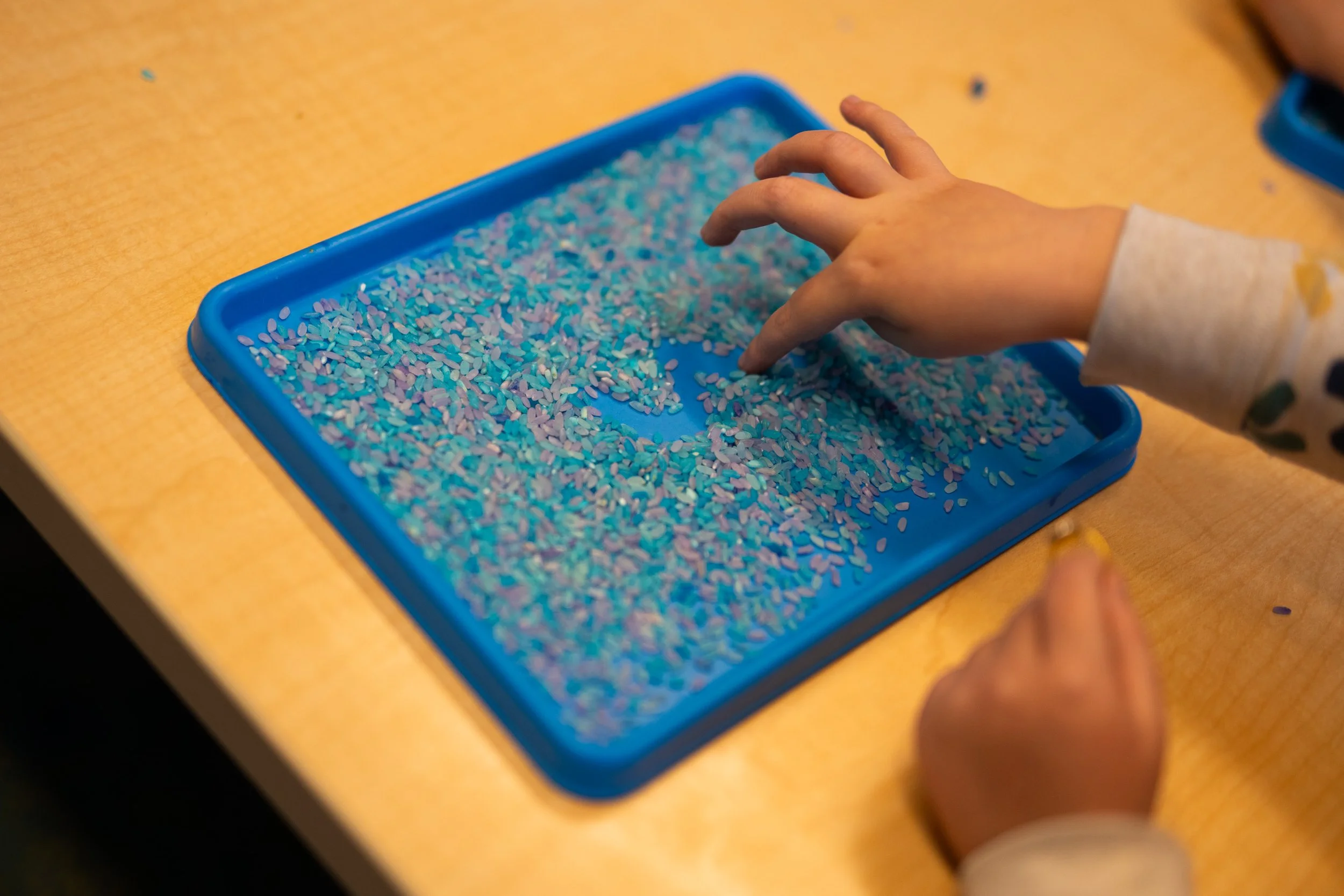Reading Comprehension Tips for Parents: How to Help Your Child Understand What They Read
Is your child struggling to understand what they read, and you’re unsure how to help them find their confidence?
If this sounds familiar, you’re not alone. Many parents feel overwhelmed when they realize their child is having difficulty with comprehension. Thankfully, you’ve come to the right place! With the right strategies, tools, and a little patience, you can help your child become a more confident and engaged reader.
Hi, I’m Miss Beth, the founder of Big City Readers. My approach to early literacy is rooted in flexibility and fun, because not all kids learn best by sitting at a desk. I use the five building blocks of early literacy, read, write, sing, talk, and play, alongside the Orton-Gillingham method, which taps into the visual, auditory, and kinesthetic learning pathways. Over the years, I’ve helped thousands of families support their kids through joyful, research-backed literacy strategies.
In this guide, we’ll walk through:
Practical reading comprehension activities you can try at home
Why reading comprehension matters
Why some kids struggle with reading comprehension
Ways to create a reading-friendly environment for your child
Let’s dive in!
How to Practice Reading Comprehension at Home
Reading comprehension is more than just recognizing words. It’s about making sense of them. The key is to make it interactive and fun! Focus on strategies that invite your child to think critically and engage with the story.
Reading Comprehension Strategies Parents Can Try Right Away
Predict outcomes: Before starting a story or chapter, ask your child what they think will happen next based on the title or earlier events. After reading, revisit their predictions and talk about why they were right, or what surprised them.
Summarize stories: Have your child retell what they’ve read in their own words. This can be verbal, written, or even acted out. A fun twist: play “30-second commercials” as a family, where everyone acts out a mini ad for the story. It’s playful, but it reinforces recall and key ideas.
Ask open-ended questions: Go beyond yes-or-no answers. Try “Why do you think the character made that choice?” or “What might happen if…?” These discussions deepen understanding and spark imagination.
These simple practices make reading interactive and strengthen comprehension, but they also build confidence. When kids learn to talk about books in their own words, they begin to see themselves not just as readers who can decode, but as thinkers who can understand.
Reading Comprehension Activities That Work (and are fun!)
Learning doesn’t have to be boring! These activities turn reading practice into something kids actually look forward to.
Story scavenger hunts: Give your child a detail to look for (“What color was the character’s jacket?”). It turns close reading into a game.
Book vs. movie: Watch the movie version of a favorite book and talk about similarities and differences.
Everyday reading games: Follow a recipe, read a board game card, or even tackle directions together—real-life literacy counts.
Let them choose: Kids are more motivated when they read about topics they love, whether it’s sports, animals, or fantasy.
Use a reading worksheet: Structured worksheets give kids extra practice. Our free Kim’s Pig Reading Worksheet includes a short story and comprehension questions that make it easy to focus on details while building confidence.
Why Reading Comprehension Matters
Reading comprehension is more than just sounding out words. It’s about truly understanding, connecting, and remembering what’s on the page. Without strong comprehension skills, kids may be able to read fluently but struggle to make sense of what they’re reading.
Here’s why comprehension is such an essential part of raising confident readers:
It fuels learning across subjects: From math word problems to science experiments, comprehension helps kids follow directions and understand concepts.
It builds critical thinking skills: Kids learn to make predictions, draw conclusions, and analyze characters or ideas, skills that will serve them well in and out of school.
It improves communication: When children understand what they read, they’re better able to summarize, explain, and share their ideas with others.
It fosters a love of reading: Understanding a story makes it more enjoyable, turning reading into an activity they look forward to instead of a frustrating chore.
When kids grasp not just the words but the meaning behind them, reading becomes a tool for discovery, creativity, and confidence. That’s why focusing on comprehension early, and weaving it into everyday reading, is one of the most powerful ways you can support your child.
Why Kids Struggle with Reading Comprehension
If your child is having a hard time, it doesn’t mean they’re not smart. It just means they need extra support in this area. Here are some common reasons:
Reading too quickly: Kids rush and miss key details.
Limited vocabulary: Without knowing enough words, it’s hard to understand meaning.
Lack of focus or interest: Boring or overwhelming texts can make kids tune out.
Underlying challenges: Dyslexia, ADHD, or anxiety can make comprehension tougher.
The first step is identifying why comprehension is hard, so you can give the right kind of support.
How Parents Can Support Reading Comprehension at Home
The best part? You don’t need to be a teacher to help your child thrive. Every day strategies make a big difference.
1. Read Aloud—Even After They Can Read Themselves
It’s tempting to stop reading aloud once your child can handle a book independently, but reading together has huge benefits. When you read aloud:
Your child hears fluent, expressive reading.
They’re exposed to new vocabulary in context.
You can pause to talk about tricky parts of the story.
Choose books slightly above your child’s independent level and talk about them as you go.
2. Encourage Rereading Without Pressure
If your child wants to read the same book again (and again!), let them. Rereading builds fluency, confidence, and deeper understanding. On the second or third read, you’ll often notice your child catching details they missed the first time.
3. Model Reading at Home
Children who see adults reading are more likely to value it themselves. Read in front of your child, and let them see that reading is enjoyable, not just homework.
The Role of Phonics and Vocabulary in Comprehension
No matter your child’s age, revisiting the basics of phonics and vocabulary can unlock stronger comprehension. These foundational skills make it easier for kids to tackle new words and ideas with confidence.
Phonemic awareness: Practice breaking words into sounds (e.g., “cat” becomes /c/ /a/ /t/) and blending them back together. This builds pattern recognition.
Vocabulary building: Introduce new words naturally—during conversations, read-alouds, or daily routines. Encourage your child to guess meanings from context before looking them up.
Choose the right books: Pick stories at your child’s level, or even slightly below, to build confidence without frustration. Success at the right level motivates kids to keep going.
Want to learn more? Check out my blog on Phonological Awareness vs. Phonics: What’s the Difference?
Key Take Aways for Parents Helping Kids with Reading Comprehension
Reading comprehension isn’t just a school skill; it’s a lifelong practice that opens doors to creativity, knowledge, and confidence. By making reading interactive, playful, and supportive, you’re giving your child tools that will serve them far beyond the classroom.
And remember: you don’t have to tackle it all at once. Every step forward, no matter how small, is worth celebrating. With your support and encouragement, your child will not only become a stronger reader but also discover the joy of reading.
Do you have any questions on how to help your child with reading comprehension? Ask away in the comments! And to keep up with all the latest childhood development tips, check out my recent posts:






Adjectives for kindergarteners help turn everyday moments into rich language experiences. In this post, you’ll learn seven fun, simple ways to practice describing words at home through reading, play, and conversation.